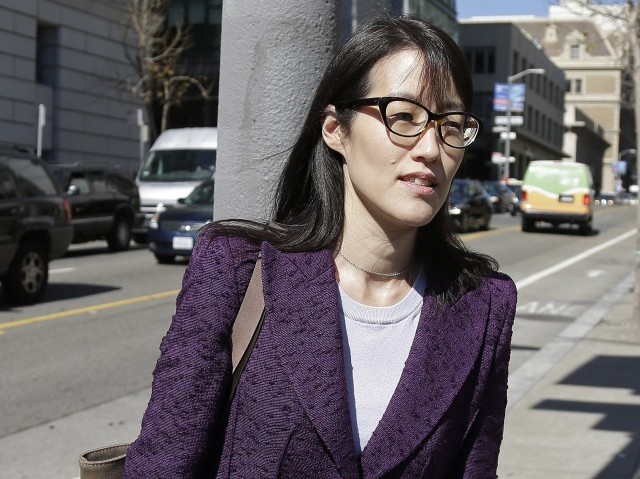
06 Apr #THANKYOUELLENPAO: NOW WE CAN INTERROGATE THE ‘DIVERSITY IN TECH’ NARRATIVE
If you’ve been following the media aftermath of interim Reddit chief executive Ellen Pao’s failed discrimination lawsuit against venture capital firm Kleiner Perkins, you may be forgiven for thinking that Pao won. She didn’t, of course, but the tech and mainstream media has nevertheless spent the last week spinning the tale of a righteous crusader fighting against a sexist status quo.
The most common argument has been that regardless of Pao’s loss, she nonetheless managed to raise awareness of the issue. Despite the fact that she (very publicly) failed to demonstrate that she suffered any discrimination at Kleiner Perkins, and that a number of unsavoury details about her own conduct and background came to light, a swathe of journalists have argued that the case sparked a national conversation on the wider issues.
But to anyone following the media narrative over the past few years, the idea that Pao vs Kleiner “started the conversation” on diversity in tech, as the Washington Post put it, is laughable. The reason Pao’s case received by-the-minute live blogs was a reflection of the fact that tech media can’t stop talking about Silicon Valley’s supposed diversity problem. For them, a case like this was irresistible.
The truth is, Pao vs Kleiner did not generate the debate. The press had been carrying on the conversation ad nauseum for years before her case hit the headlines. Indeed, the topic is so charged that when Google CEO Eric Schmidt interrupted a female co-panellist during a discussion, it made headlines across dozens of outlets as an example of rampant Silicon Valley sexism.
Why does diversity in tech remain such a hot-button issue for the progressive media? The core problem is ratios. According to figures from Google, women make up just 17 percent of the U.S. tech workforce. Latinos make up two percent, while African-Americans make up one percent. In the U.S., where most of the western tech world is based, diversity in tech is significantly below diversity in the wider economy. Following the sector’s rapid growth in wealth and influence over the past decade, diversity in tech suddenly became one of progressive activists’ chief concerns.
Of course it goes without saying that there is no overt, malevolent conspiracy to keep women out of tech. As Heather MacDonald explains in this eloquent Wall Street Journal article, technology and venture capital companies are in constant competition to attract the best talent. Any company that deliberately excluded gifted candidates because of their gender would quickly be outdone by their competitors.
Rather than claiming overt discrimination where none can be found, smarter progressives turn to the notion of “unconscious bias” to explain the under-representation of women and minorities in tech. According to this argument, even if big tech companies don’t intend to discriminate, but unconscious assumptions about race and gender cause them to unwittingly do so anyway. It’s a very Calvinist way of thinking — sinfulness is unavoidable, even if you mean well.
It’s easy to see why this argument caught on. If companies are convinced that unconscious bias and subtle, unseen intolerance is preventing them from acquiring talented female and minority employees, of course they would want to take steps to address it. Even if claims about the impact of bias are somewhat exaggerated, what harm could it do?
A great deal, in fact.
In their quest to shine a spotlight on unconscious biases, diversity activists in Silicon Valley now seek to uncover it in everyday behaviour. Jokes, comments, and even body language, even if they are completely innocent on the face of it, are now examined for any signs of a racist or sexist “microaggression.” Jane Porter, a writer for FastCompany, explains how the concept works:
All throughout the day, we send subtle messages to the people around us through our body language, word choice and behavior. Derald Wing Sue, professor of counseling psychology at Columbia University calls these signals “microagressions,” which can have a profound and detrimental effect on the people around us.
“Microaggressions are the brief and commonplace daily verbal, behavioral, and environmental indignities, whether intentional or unintentional, that communicate hostile, derogatory, or negative racial, gender, sexual-orientation, and religious slights and insults,” Sue writes in his book, Microaggressions in Everyday Life.


Sorry, the comment form is closed at this time.